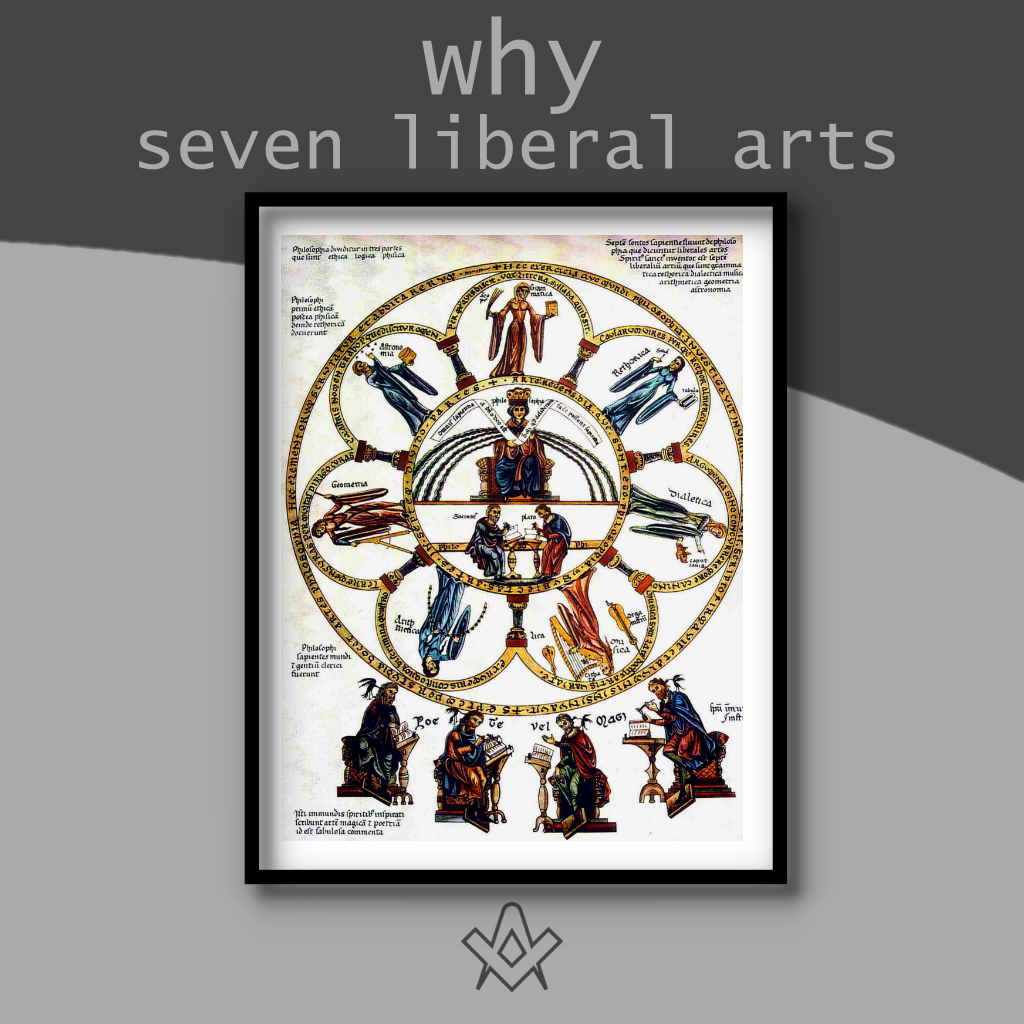The Fellowcraft Degree exhorts us to study the Seven Liberal Arts but for most Freemasons this is something they have never heard of, let alone studied.
Why ‘seven’, why ‘liberal’, why ‘arts’?
We have briefly introduced this subject in an earlier edition of The Square Magazine [linked below] but it is something that is equally important to the modern Mason as it was to those in antiquity.
What many people do not realise that instead of the liberal arts being only for the elite or wealthy, they are areas of study that we can apply in our every day life.
To keep things simple, we have found three very useful videos presented by Dr Christopher Perrin on the Classical Academic Press YouTube channel [linked below].
What we know as the liberal arts (artes liberales) date back over two thousand years, to classical antiquity.
In ancient Greece, free men were expected to have at least a basic education in the study of humanities, mathematics and science.
The women were taught more physical pursuits such as dancing, singing and playing musical instruments – it was believed that these arts complemented the more logical, scientific side of the male learnings.
Later, in the Middle Ages, these teachings became more widely known as the ‘Seven Liberal Arts’ (septem artes liberales) being:
Grammar
Logic
Rhetoric
Arithmetic
Geometry
Astronomy
Music
A useful mnemonic to remember the arts was devised (of which there are several versions):
Lingua, tropus, ratio, numerus, tonus, angulus, astra.
Gram. loquiter, Dia. vera docet, Rhe. verba colorat
Mu. canit, Ar. numerat, Geo. ponderat, Ast. colit astra.
Grammar talks, Dialectic teaches truth, Rhetoric colours words,
Music sings, Arithmetic numbers, Geometry weighs, Astronomy tends the stars.
Today, educational institutes still teach a Liberal Arts Education which is defined as:
‘the traditional academic program in Western higher education. Liberal arts generally covers three areas: sciences, arts, and humanities. Its central academic disciplines include philosophy, logic, linguistics, literature, history, political science, sociology, and psychology. Liberal arts education can refer to studies in a liberal arts degree program or to a university education more generally. Such a course of study contrasts with those that are principally vocational, professional, or technical.’
– Wikipedia
Why ‘seven’ ?
By Herrad of Landsberg – Hortus deliciarum,
IMAGE LINKED: wikimedia Attribution 4.0 International (CC BY 4.0)
The image ‘Philosophy and seven liberal arts’ represents the circle of philosophy, and is presented as a rosette of a cathedral: a central circle and a series of semicircles arranged all around.
It shows learning and knowledge organised into seven relations, the Septem Artes Liberales or Seven Liberal Arts.
Each of these arts find their source in the Greek φιλοσοφία, philosophia, literally ‘love of wisdom’.
St. Albert the Great, a doctor of the Catholic Church, asserted that the seven liberal arts were referred to in Sacred Scripture, saying:
‘It is written, “Wisdom hath built herself a house, she hath hewn her out seven pillars” (Proverbs 9:1). This house is the Blessed Virgin; the seven pillars are the seven liberal arts’.
– Wikipedia

What are the Seven Liberal Arts?
Why ‘liberal’?
Now, why ‘liberal’? It is not quite what we would expect from today’s usage of the word ‘liberal’ within politics. It begins with tree bark…
Why ‘arts’?
When we think of an ‘art’ we think of things that are creative or ‘made’. But the root of the terminology is somewhat more complex…
We hope that has given you an idea of what the seven liberal arts are.
This is just the beginning of a series of articles that will help you make an advancement in your Masonic knowledge, for use in every day life.
All videos are featured on the Classical Academic Press YouTube channel.

Approaching the Middle Chamber:
The Seven Liberal Arts in Freemasonry & the Western Esoteric Tradition
by Jaime Paul Lamb, Jason Marshall, Matthew Anthony
In the culmination of the second section of the Fellowcraft degree, prior to entering the symbolic “middle chamber” of King Solomon’s Temple, the Craftsman must ascend a flight of winding stairs, where important lessons are bestowed upon the Craftsman for future reflection and study.
Unfortunately, few Craftsman have undertaken the study of the Seven Liberal Arts and Sciences, perhaps due to the fact that prior to this book by Brother Lamb, few books have taken an in-depth look at the Seven Liberal Arts and Sciences.
This is a well-written, well-researched, and very approachable book that explores how the Seven Liberal Arts and Sciences relate to Freemasonry, as well as other esoteric traditions.
This book is an instant classic, and a must read for anyone who has tread upon the flight of winding stairs to the middle chamber.

The Trivium:
The Liberal Arts of Logic, Grammar, and Rhetoric
by Sister Miriam Joseph, Marguerite McGlinn
Who sets language policy today? Who made whom the grammar doctor? Lacking the equivalent of l’Académie française, we English speakers must find our own way looking for guidance or vindication in source after source.
McGuffey’s Readers introduced nineteenth-century students to “correct” English. Strunk and White’s Elements of Style and William Safire’s column, “On Language,” provide help on diction and syntax to contemporary writers and speakers.
Sister Miriam Joseph’s book, The Trivium: The Liberal Arts of Logic, Grammar, and Rhetoric, invites the reader into a deeper understanding—one that includes rules, definitions, and guidelines, but whose ultimate end is to transform the reader into a liberal artist.
A liberal artist seeks the perfection of the human faculties. The liberal artist begins with the language arts, the trivium, which is the basis of all learning because it teaches the tools for reading, writing, speaking, and listening.
Thinking underlies all these activities. Many readers will recognize elements of this book: parts of speech, syntax, propositions, syllogisms, enthymemes, logical fallacies, scientific method, figures of speech, rhetorical technique, and poetics.
The Trivium, however, presents these elements within a philosophy of language that connects thought, expression, and reality.
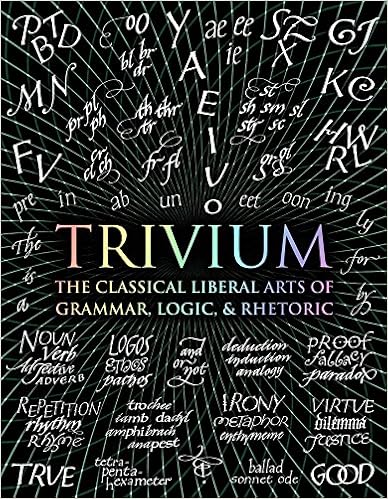
Trivium: The Classical Liberal Arts of Grammar, Logic, & Rhetoric
The trivium refers to the three liberal arts considered in classical Greece to be the pillars of critical thought: grammar, logic, and rhetoric.
Following on the success of Quadrivium and Sciencia, Trivium gathers six Wooden Books titles together into a beautiful six-color package that presents ancient wisdom in an accessible way. Trivium will include the books Euphonics, Grammar, Logic, Rhetoric, Poetic Meter and Form, and Ethics.
Wooden Books was founded in 1999 by designer John Martineau near Hay-on-Wye. The aim was to produce a beautiful series of recycled books based on the classical philosophies, arts and sciences.
Using the Beatrix Potter formula of text facing picture pages, and old-styles fonts, along with hand-drawn illustrations and 19th century engravings, the books are designed not to date.
Small but stuffed with information. Eco friendly and educational. Big ideas in a tiny space.
Recent Articles: skills
 7 Soft Skills Taught In Freemasonry Discover how Freemasonry nurtures seven irreplaceable soft skills—collaboration; Communication, Teamwork, Empathy, Flexibility, Conflict Resolution, Active Listening, and Trustworthiness. Explore how these essential human attributes, grounded in emotional intelligence and ethical judgment, remain beyond the reach of AI. |
 Freemasonry and Reskilling in the age of AI The article explores the challenges and strategies organizations face in reskilling their workforce in the era of automation and artificial intelligence. It highlights the need for companies to view reskilling as a strategic imperative and involve leaders and managers in the process. The article also emphasizes the importance of change management, designing programs from the employee's perspective, and partnering with external entities. |
 Ten Central Commandments or Principles of Freemasonry Embrace the wisdom of Freemasonry's teachings in your personal journey towards self-improvement and stronger leadership. By upholding virtues of integrity, compassion, and respect, and uniting these with a commitment to continuous learning and social responsibility, inspire change. Transform yourself and the world around you, fostering a legacy of positivity and enlightenment. |
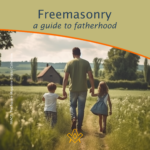 Freemasonry: A Guide to Fatherhood In the sacred halls of Freemasonry, fathers discover a hidden power to transform their parenting journey. With its timeless values, supportive community, and life-enriching teachings, Freemasonry empowers fathers to provide a moral compass, foster self-improvement, build stronger connections, and embrace the confidence and wisdom needed to navigate the complex realm of fatherhood. |
 Courage as a core value in Freemasonry Freemasonry, a revered fraternity, prioritizes virtues like honesty and charity. However, courage is foundational. From Plato to Maya Angelou, courage is vital for other virtues. Freemasonry's teachings, referencing events like Gettysburg, emphasize diverse courage forms. In today's divided world, Masons promote and exemplify courage, understanding its importance in facing challenges. |
 How Freemasonry Cultivates Ideal Entrepreneurial Traits Freemasonry's cryptic rituals hold timeless lessons for building entrepreneurial greatness. Through tests of passion, vision and skill, Masonic teachings forge ideal traits like grit, creativity and alliance-making needed to seize opportunity and elevate enterprises. The right commitment unlocks code for entrepreneurial success. |
 What you see praiseworthy in others "What you see praiseworthy in others, carefully imitate, and what in them may appear defective, you will in yourself amend". This passage of Masonic ritual (Taylors Working, Address to the w |
 How to Learn Ritual with a Learning Disorder So what do you do when faced with that little blue book? Most Masons when first looking at the ritual book can understandably be fazed – the tiny print, the missing words, the questions and answers! Learning ritual can be a challenging task for anyone, especially individuals with learning disorders, but it is not impossible. Here are some tips to help make the process easier. |
 A "mind palace", also known as a "memory palace", is a technique for memorizing and recalling information. How would your life change if you could remember anything and everything? Discover the 'Mind Palace' and all will be revealed. |
 What is leadership and who does freemasonry help develop those skills needed to be a better leader |
 A story of the 'Ruffians' – those individuals whose paths cross ours, who feel entitled to seize and consume the property of others that they have not earned. A lesson to build character to be a better citizen of the world. |
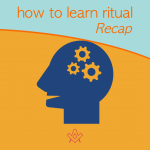 Now we are back in the Lodge room once again, maybe it is time to review how we learn and deliver ritual and look at different ways of improving that process. |
 Making an advancement in Masonic Knowledge can become far easier when you 'learn how to learn'. |
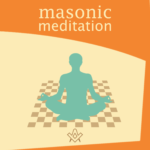 Learn how to practise Masonic meditation in a busy world with all its care and employments |
 Struggling to learn your ritual? Become a 5-Minute Ritualist with the aid of a book of the same name. |
 Day in the life of a Freemason As we start a new year, maybe start it with a new habit? |
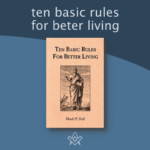 Ten Basic Rules For Better Living Ten Basic Rules For Better Living by Manly P Hall |
 How can we use masonic leadership skills to avoid confrontational situations? |
 How the Trivium is applied to Critical Thinking - {who, what, where, when} - {how} - {why} |
 The Seven Liberal Arts - why 'seven', why 'liberal', why 'arts'? |
 How to improve your public speaking skill with 6 techniques |
 Do you need to speak in public, or present Masonic ritual without notes ? |
 What are logical Fallacies and how to spot them |
 Share one easy tip to learn masonic ritual; Some good tips from Facebook followers |
 How can we use the 7 secrets of the greatest speakers in history |
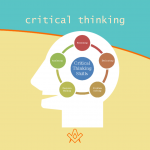 What is a critical thinker and what are their characteristics? |
 Share one personal skill Freemasonry helped you to improve? How can we make practical use of the lessons taught in Masonic writings? |
 An introduction to the art of public speaking - speak with confidence |
 Seven Liberal Arts and Sciences What do you know about Seven Liberal Arts and Sciences |
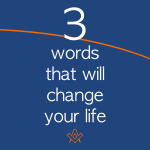 Three Words That Will Change Your Life This article discuss a common situation found in many lodges - a difficulty in holding a conversation with a stranger. |
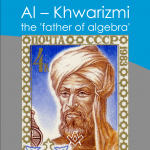 Al - Khwarizmi live c750 - c820 is credited as being the father of Algebra, being asked what is Man, give his answer in an algebraic expression |
masonic knowledge
to be a better citizen of the world
share the square with two brothers

click image to open email app on mobile device


